Plastics have been made and discarded recklessly. Plastics flowed into the sea endanger the lives of marine animals and plants, become microplastics, damage a wide range of marine ecosystems from plankton to large mammals, and return to humans through eating sea foods.
The marine plastic debris coming to the beach by accident is the lucky one who gets a chance to avoid such misfortune. It’s also lucky from a human point of view. Though we should try to prevent marine pollution from getting worse, there’re many places in the ocean where it’s difficult for us to access. In addition, it requires specialized personnel and equipment to collect marine debris in the sea, and it costs too much. So, it’s lucky if marine waste appears on the beach.
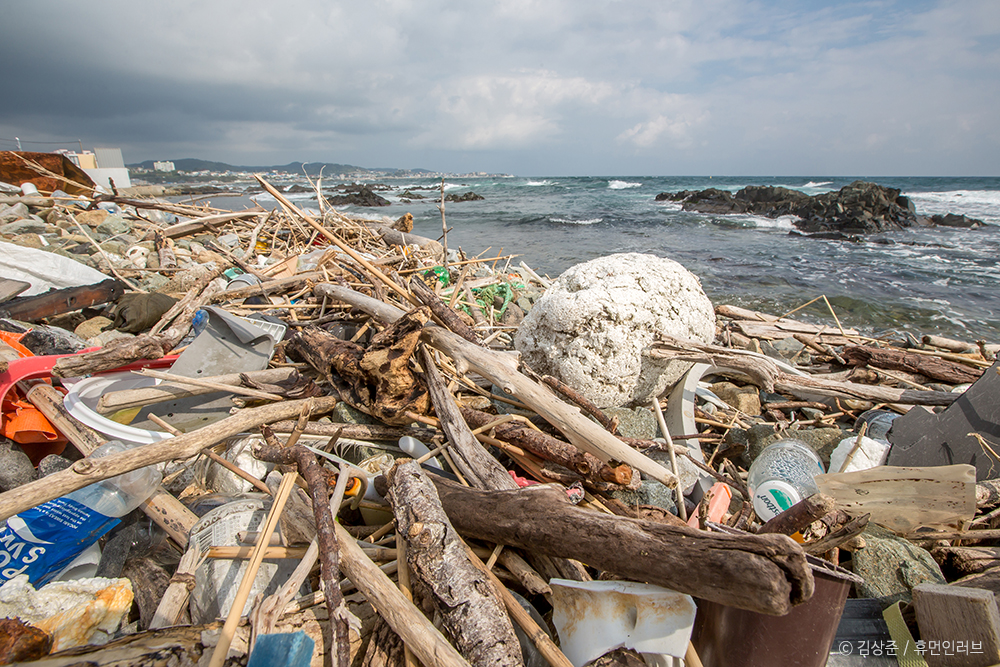
Collected 4,800L of marine debris in Guryongpo, Pohang
On October 9, 2021, we collected 4,800L of marine waste from the beach in Hajeong-ri, Guryongpo-eup, Pohang.
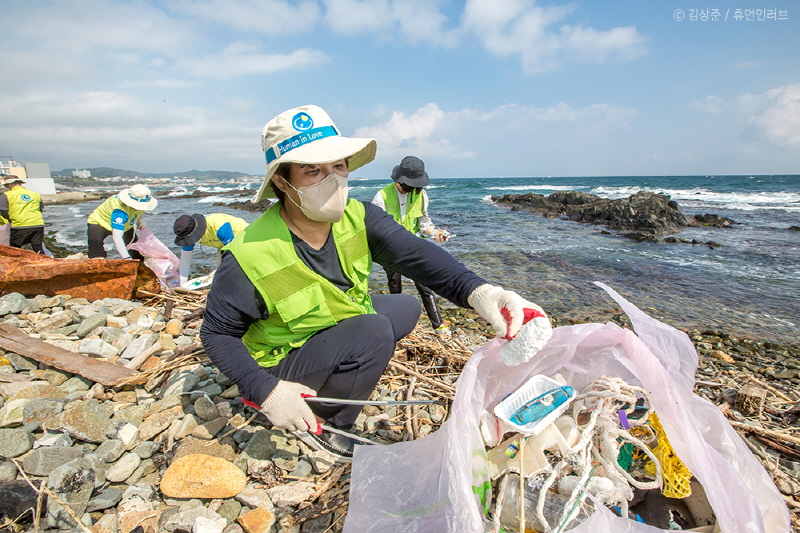
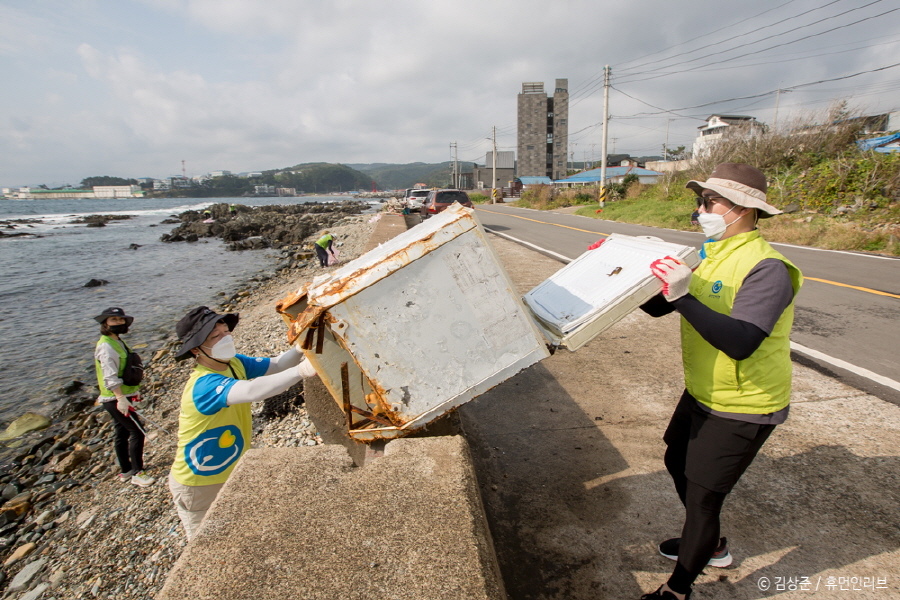
We could see a lot of fishing nets, ropes, styrofoam buoys and pieces, and plastic bottles. Also, we collected fishing gear, glasses, cans, shoes, various pieces of plastic, a refrigerator, and so on.
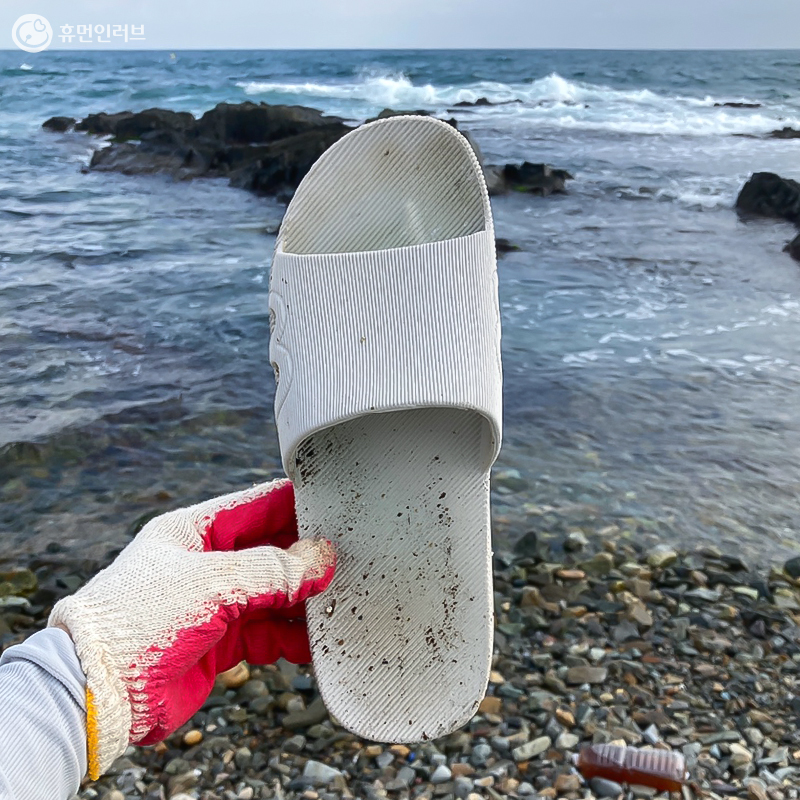
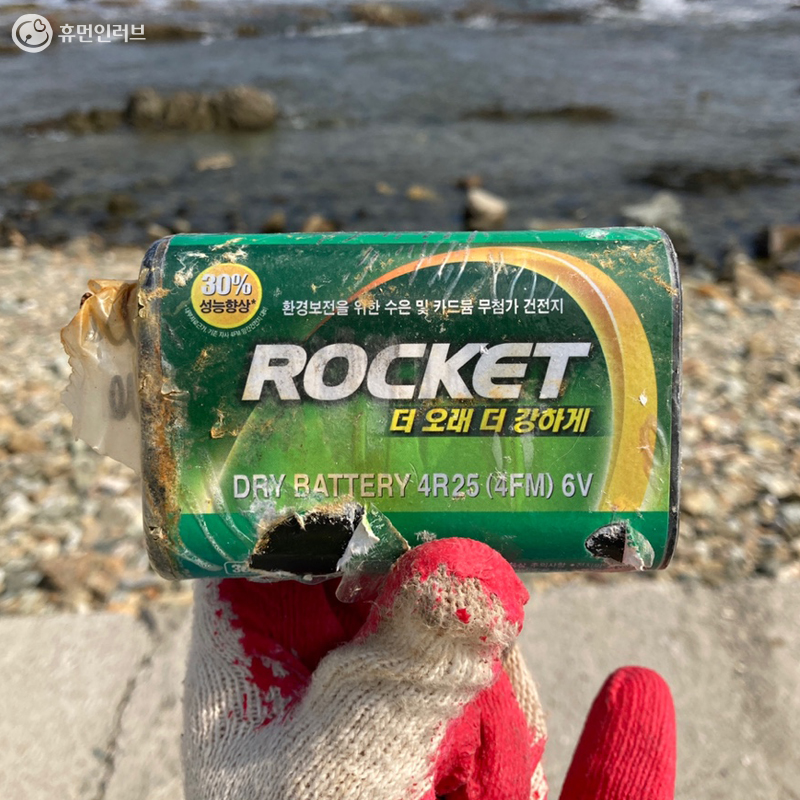
[ Marine debris collected from the beach in Hajeong-ri, Guryongpo-eup, Pohang]
We also found a refrigerator in the same place last August. The insulation and components of refrigerators are made of plastic, and Freon gas, one of the refrigerant chemicals, destroys the ozone layer, promotes global warming, and causes skin cancer when it releases into the atmosphere. Please don’t throw away your refrigerator in the sea!
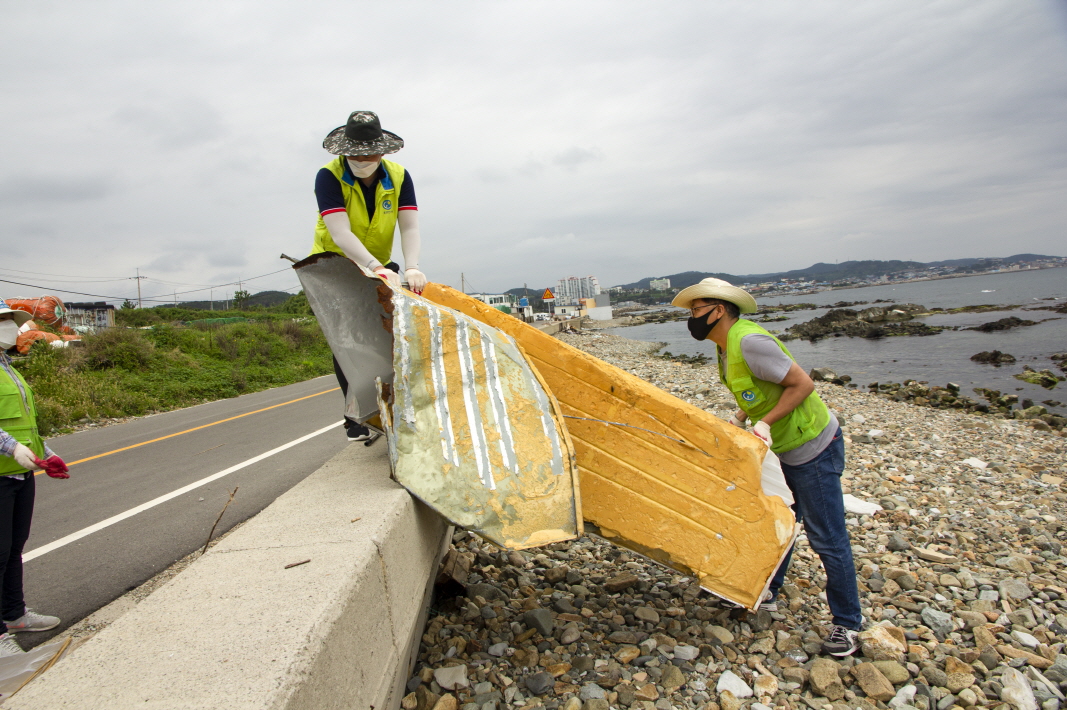
Plenty of rubbish size of marine debris in the gravel
Whenever we picked up a pebble, we could see pieces of Styrofoam, bottle lids, toothbrushes, syringes, fishing lures, cigarette butts, disposable spoons, straws, etc. Things commonly used and thrown away in everyday life have existed in the sea without decay.
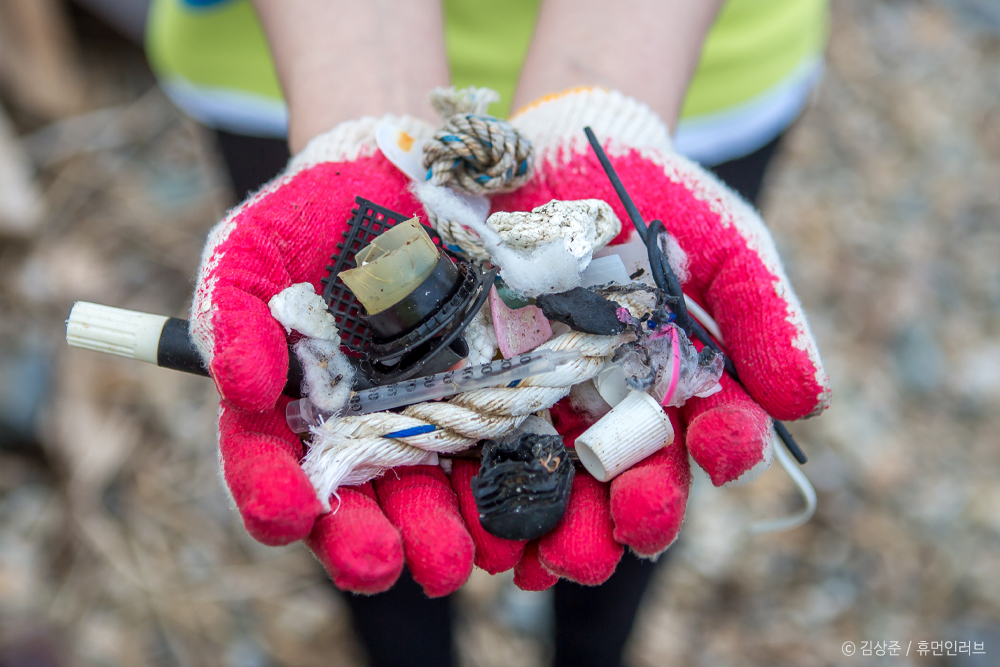
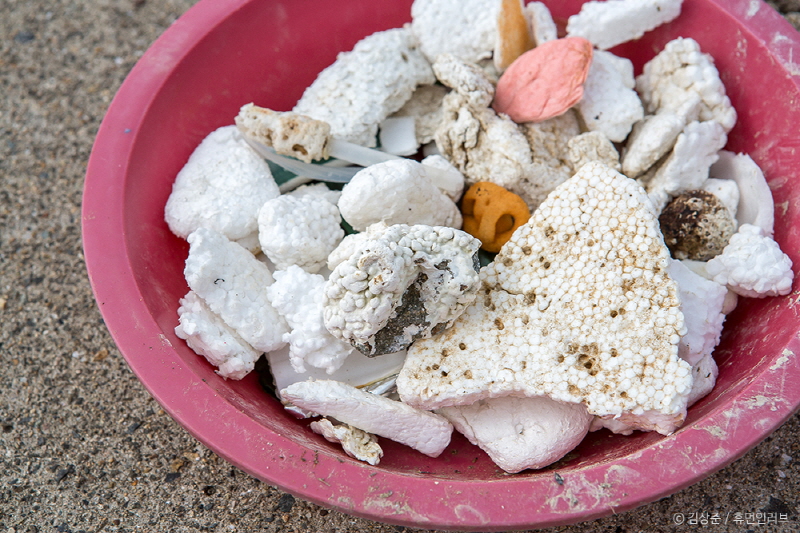
Collected 2,100L of marine waste in Uljin known as a clean sea region
The visitors, who saw the indigo waves in the sea of Uljin, don’t feel the need to go to the Mediterranean Sea because the indigo wave in Uljin looks very attractive. And, Uljin is the region where fresh water and salt water meet, and various marine lives are living in the sea. However, Uljin was even unavoidable of marine waste attack. On October 10, we collected 2,100L of marine debris from the Gongse Port breakwater and Mangyangjeong Beach. We also found fishing nets, ropes, styrofoam buoys, and plastic bottles there. In particular, we collected shock-absorbing tires near the breakwater and found fluorescent lamps and urethane foam sprays on the beach.
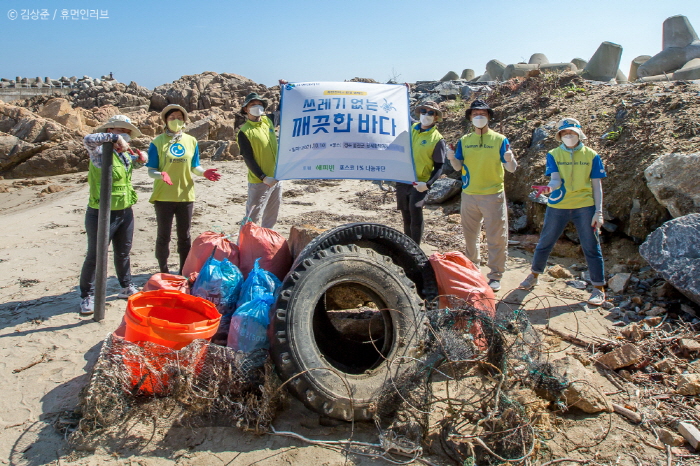
Increase of waste from fishing and car camping
We could get to know the explosive growth of the fishing population when we collected marine debris. Fishing lines and needles hung in every rock crevice on breakwaters and the rocks on the seashore, and artificial baits with fishing hooks are now easily seen at any beach.
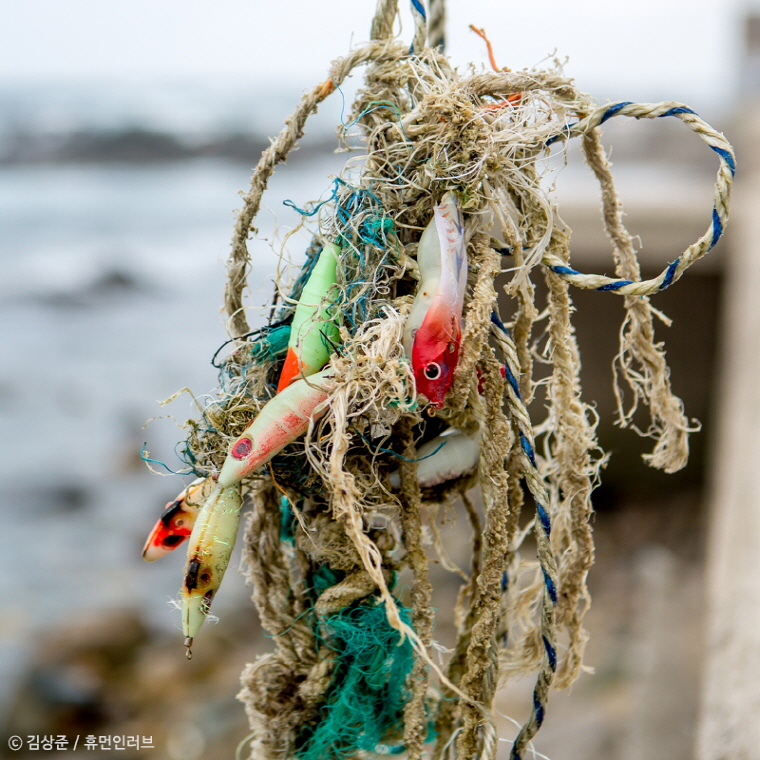
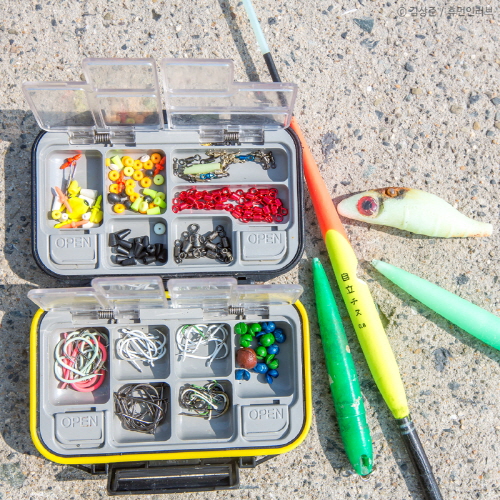
[ Dumped fishing gear in Hajeong-ri, Pohang and the Gongse breakwater, Uljin ]
In addition, since social distancing has been prolonged due to COVID-19, the number of people doing car camping has increased dramatically. All the places known as good spots for car camping are becoming wastelands after the weekend.
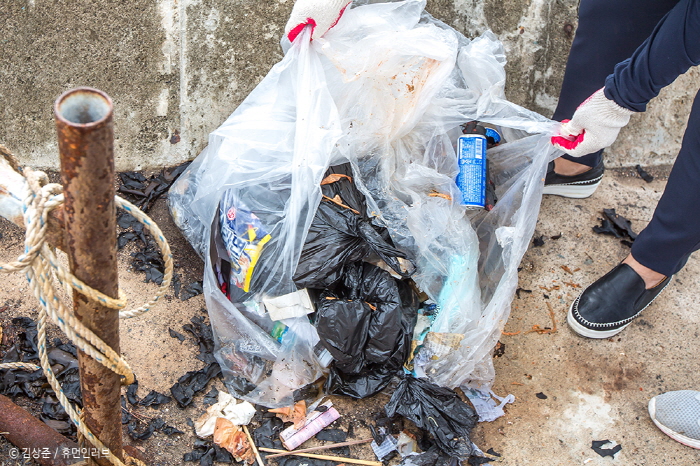
The public’s interest in marine conservation has increased, but what it has been changed was little in the reality.
The discovery of the Great Pacific Garbage Patch in the North Pacific, a tortoise got stuck in a straw, and an albatross that feeds a plastic piece to its children became a hot topic and made the public raise awareness of and interest in marine pollution. But, unfortunately, it has been changed a little bit. We need laws and facilities to prevent marine pollution and to collect and dispose of marine debris. Also, our society should switch to a system capable of resource recycling, instead of just using and disposing of them. Increasing public consensus and raising awareness are required for the journey, which is not easy to go.
Pick up the lucky marine debris🍀
If you make any waste, we should take it back, and if you come across lucky trash on the beach, don’t forget to pick it up. Furthermore, we will try to select wise choices to reduce waste in our daily life, such as avoiding over-packaging, not buying non-recyclable products, rejecting unnecessary items, refraining from using single-use products, using a tumbler, and properly disposing of waste.
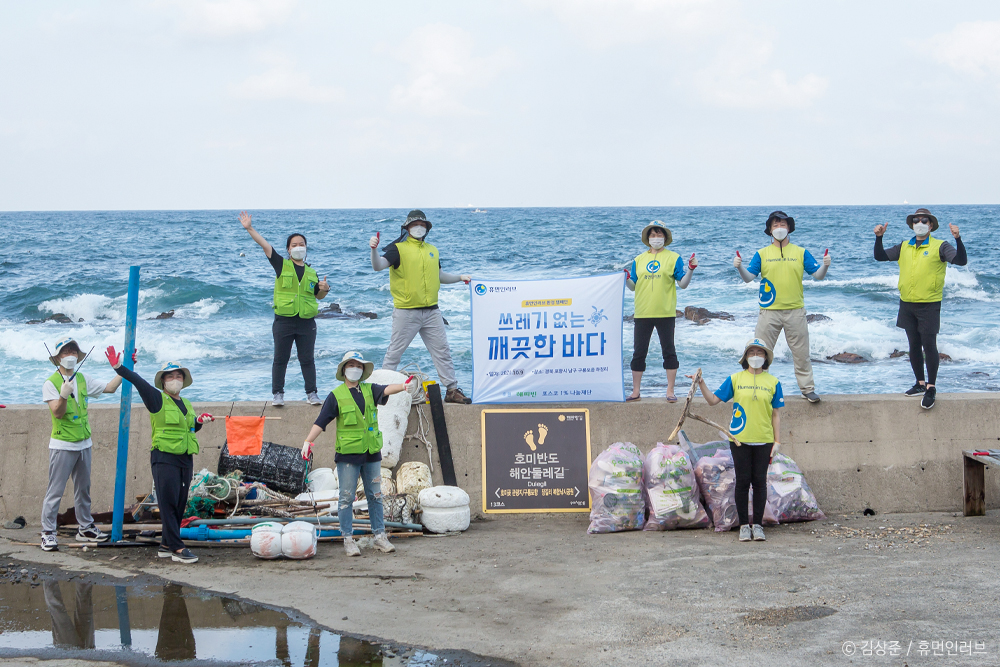
The 2021 environmental campaign of HIL, named ‘Making a clean ocean without waste’, has been conducted with the support and volunteer activities of HIL’s family members, Happybean, and the Posco foundation. Thank you to everyone who joined us.

